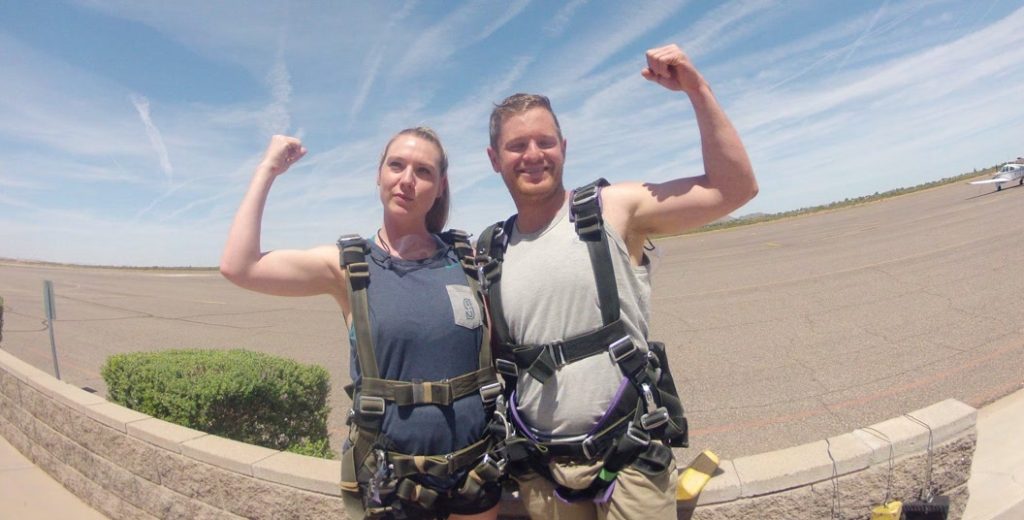

![]()
![]()
The FAA Skydive Rules
The FAA is the ultimate skydive authority of all civilian air traffic. They also control general aviation, (private planes and jets) and commercial (Delta, Spirit, and American for example) operations as well. As a result all skydive aircraft and skydive operations are regulated by the FAA. Because, under Part 105 and Part 91 of the Federal Aviation Regulations, safety improves. These rules have been refined and reviewed over many years and have come to be known as the best practices.
Phoenix Skydive Center remains in compliance of all FAA regulations, part 91 and part 105. Skydivers should research the skydive center before committing to your jump. Only skydive at qualified centers. Therefore, reputable skydive centers will produce any certifications on request. We will not compromise your safety for any reason.
Personal Skydive Rules
Phoenix Skydive Center
USPA Skydive Rules
The United States Parachute Association is the skydive authority in the USA. They issue licenses and certifications to civilian skydivers. Furthermore, it acts as the liaison between skydivers and the Federal Aviation Administration. The USPA, for instance, offers membership to skydive centers that are committed to strict safety and training standards. Phoenix Skydive Center has been a member in good standing since 2010. We maintain the highest quality of safety and training, supporting skydive authority in the US.
Local Skydive Rules
As government goes, so does the rule book. State and local governments also have rules for skydiving based on local laws. For instance, in California all skydive instructors are employees of the company and are required to comply with California worker regulations. In other states Skydive instructors are independent contractors that are able to freelance at different Drop zones at will.
S.O. Skydive Rules
The most restrictive and sometimes unreasonable rules come from our Significant Others. After all they make the rules in our ordinary lives, it makes since that they also dictate the rules for our extreme efforts. No jumping on Christmas day, no jumping with the dog, no naked jumps in broad daylight are a few of the common rules our SO lays out for compliance. So who needs the FAA or USPA or even local rules when we have our SOs to keep us safe from ourselves.
Jump Staff
